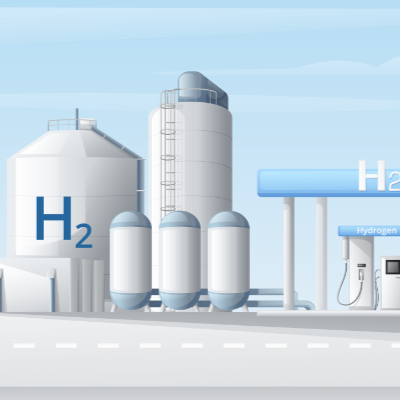The use of hydrogen (H2) is one of the key pillars in the energy transition towards greater sustainability, harnessing renewable energies and fostering development in line with the guidelines of the UN2030 agenda. H2 combustion equipment will be an essential and fundamental technology to meet emissions reduction targets imposed by European measures and objectives set within the scope of the energy transition. Additionally, in many aspects, H2 is the perfect fuel, offering cleaner and more efficient combustion, with the highest combustion energy per kilogram compared to any other fuel, making it more weight-efficient than currently used fuels.
In this context, cork emerges as a sustainable material with a unique range of combined properties and undeniable potential to improve the safety of H2 storage systems. It allows for the lining of H2 tanks with a material of low thermal conductivity (approximately 0.04 W/m.K), enabling thermal insulation of the tank and thereby reducing the risk of explosion, both due to external temperature increases that can lead to H2 boiling and by delaying the spread of fires in the event of a fire. It is a tough material with remarkable impact absorption properties as already demonstrated in the literature. All these properties can be further tailored for specific scenarios through the production of clusters with individualized characteristics and binders, and it is also possible to incorporate integrated monitoring systems into these composites. Finally, cork is a natural material that does not compromise the sustainability arguments associated with renewable energies.
Start/end date Jul 2022 — Dec 2025
Research groups
Plano de Recuperação e Resiliência
Project code 10.7



